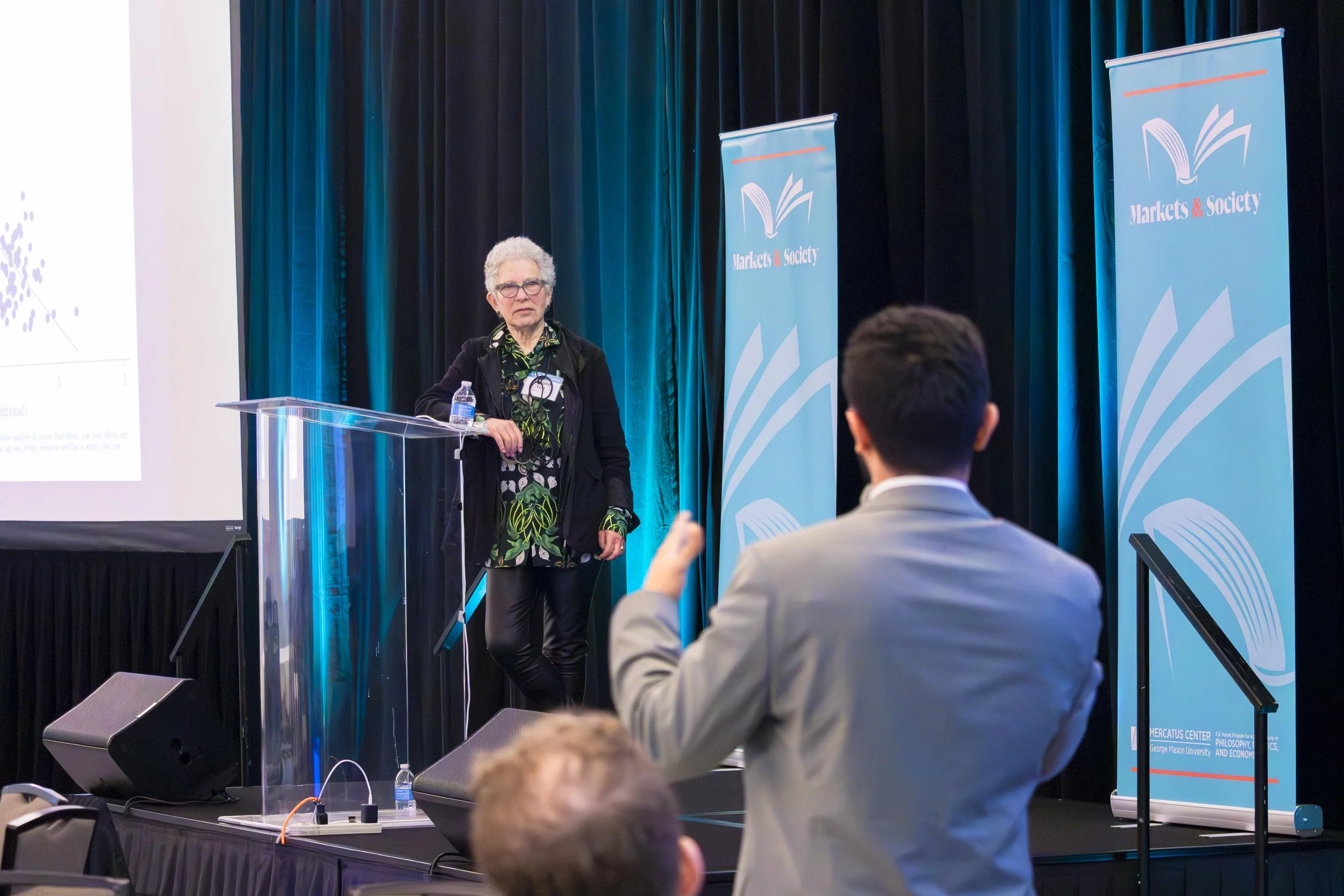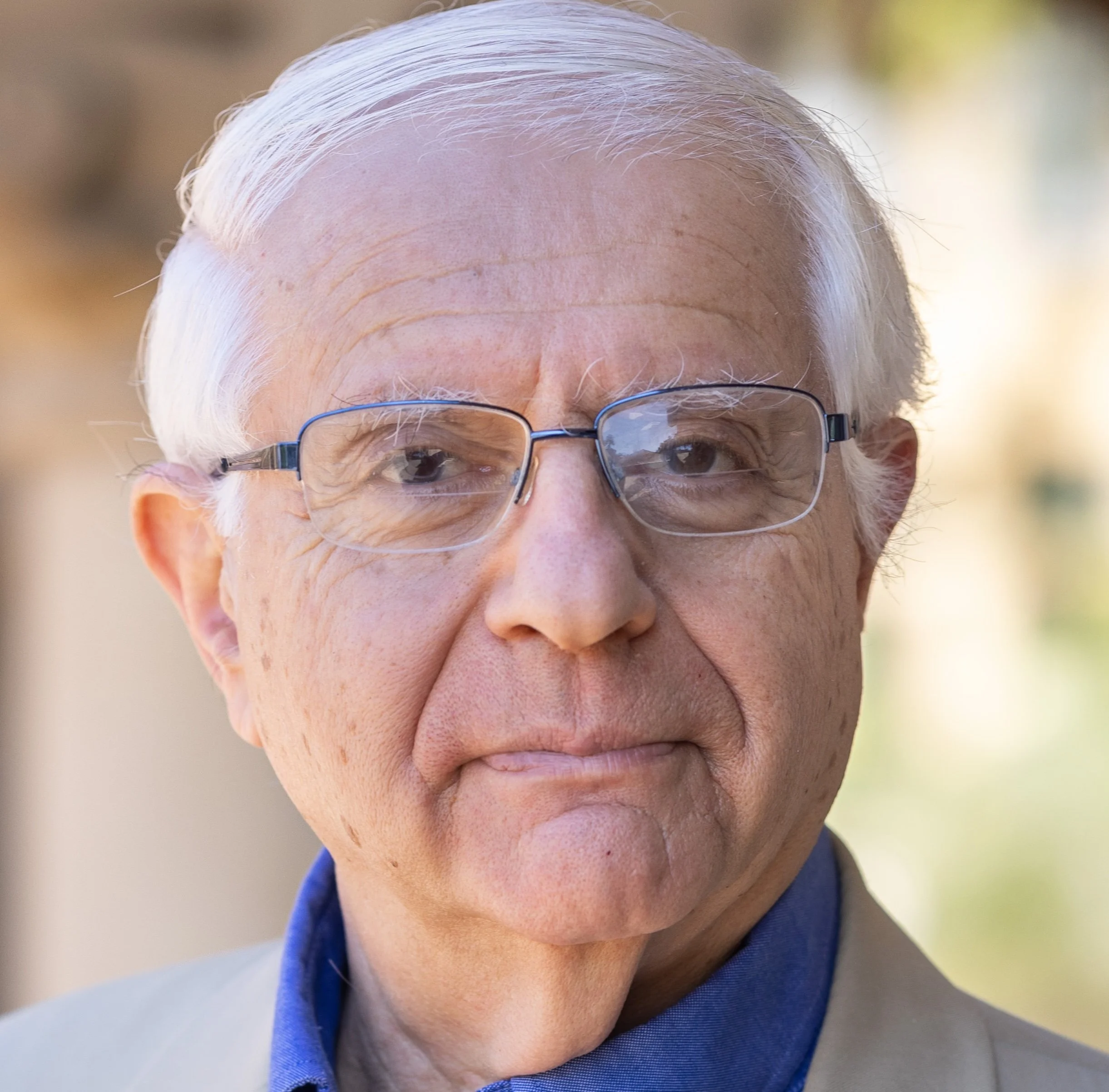
Keynote Speakers
Emily Chamlee-Wright
Economics, Institute for the Humane Studies
Dr. Emily Chamlee-Wright is the President and CEO of the Institute for Humane Studies (IHS), a nonprofit dedicated to advancing human flourishing by developing the ideas that underlie a free society and the people who carry those ideas forward. Since joining IHS in 2016, she has transformed IHS by linking its scholars and research with policy makers, philanthropists, and civil society leaders who apply those ideas in practice. Prior to her tenure at IHS, she served as Provost and Dean at Washington College, and as the Elbert H. Neese Professor of Economics and Associate Dean at Beloit College.
An accomplished scholar in the field of culture and economics, Chamlee-Wright has authored or edited six books, including The Cultural and Political Economy of Recovery, Liberal Learning and the Art of Self-Governance, and Culture and Enterprise (with the late Don Lavoie). She is a former W.K. Kellogg National Leadership Fellow, recipient of the Excellence in Teaching Award from Beloit College, and a Distinguished Alumna of George Mason University. Dr. Chamlee-Wright frequently speaks and writes on challenges facing contemporary liberal democracy, emphasizing the norms and institutions essential to the liberal project. Her public work has appeared in prominent publications such as Forbes, The Wall Street Journal, Dispatch, Inside Higher Ed, and Persuasion.
Mark Granovetter
Sociology, Stanford University
Mark Granovetter is Joan Butler Ford Professor of Sociology, Emeritus, at Stanford University. He previously taught at the Johns Hopkins University, Harvard University, the State University of New York at Stony Brook and Northwestern University. From the time of his undergraduate studies in History at Princeton, he has had a consuming interest in the way that individual action, social networks and social institutions interact with and shape one another. His focus is on actors who try to define and solve problems, not with simple rational strategies, but rather as pragmatists assembling ideas and practices from their social environments -- what Bourdieu called bricolage. His first approach to these questions led him to the analysis of social networks.
His widely cited 1973 paper “The Strength of Weak Ties”, showed how weak rather than strong ties bridge cliques that might otherwise be disconnected, thus conveying information to individuals about jobs, rumors and discoveries about which they might otherwise be unaware. His 1974 (2nd ed. 1995) book Getting a Job: A Study of Contacts and Careers pursued this theme, exploring the role of social networks in labor markets. His models of collective behavior, in which small differences in the distribution of individual thresholds for action might lead to huge differences in collective outcomes, focused on the nonlinearity of the relation between causes and social outcomes. Since the mid-1980s, he has focused on the sociology of the economy, beginning with his 1985 paper “Economic Action and Social Structure: The Problem of Embeddedness”.
His recent book, Society and Economy, explores how trust, norms, power and the details of networks accumulate into macro-level institutions that then in turn shape what individuals do. The first volume (Harvard University Press, 2017) sets out the theoretical framework, while the second (in process) will use this framework to illuminate the study of such important topics and cases as the role and variety of personal relationships in the economy, corruption, corporate governance, organizational form and the emergence of new industries like the American electricity industry and the high-tech industry of Silicon Valley.
Roberta Herzberg
Political Economy, Mercatus Center at George Mason University
Dr. Bobbi Herzberg is a Distinguished Senior Fellow and a Senior Research Fellow with the F.A. Hayek Program for Advanced Study in Philosophy, Politics, and Economics at the Mercatus Center at George Mason University and a Senior Fellow at the Fraser Institute. Formerly, she served as Assistant Director of Individual Freedom & Free Markets at the John Templeton Foundation and held a faculty position in political science at Utah State University (USU), where she was Department Head in Political Science and Administrative Director of The Institute of Political Economy. From 1984 to 1992, she was an Assistant Professor at Indiana University, and between 2014 and 2016, she served as President of the Public Choice Society. Herzberg received her PhD in Political Economy from Washington University in St. Louis. She writes and speaks regularly on public policy, public choice, institutional analysis, and the Bloomington School.
Emily Oster
Economics, Brown University and ParentData
Dr. Emily Oster is the JJE Goldman Sachs University Professor of Economics at Brown University. She is also the CEO of ParentData, a Faculty Research Fellow at the National Bureau of Economic Research, and the Executive Director at the COVID-19 School Data Hub. She earned her BA and PhD in Economics from Harvard University. Her research focuses on health and statistical methods, as well as educational recovery from the COVID-19 pandemic. She is a New York Times best-selling author, whose books include The Unexpected: Navigating Pregnancy During and After Complications (Penguin Press, 2024). Expecting Better: A Data-Driven Guide to Better Decision Making in the Early School Years (Penguin Press, 2024), The Family Firm: A Data-Driven Guide to Better Decision Making in the Early School Years (Penguin Press, 2022), and Cribsheet: A Data-Driven Guide to Better, More Relaxed Parenting, from Birth to Preschool (Penguin Press, 2020).




